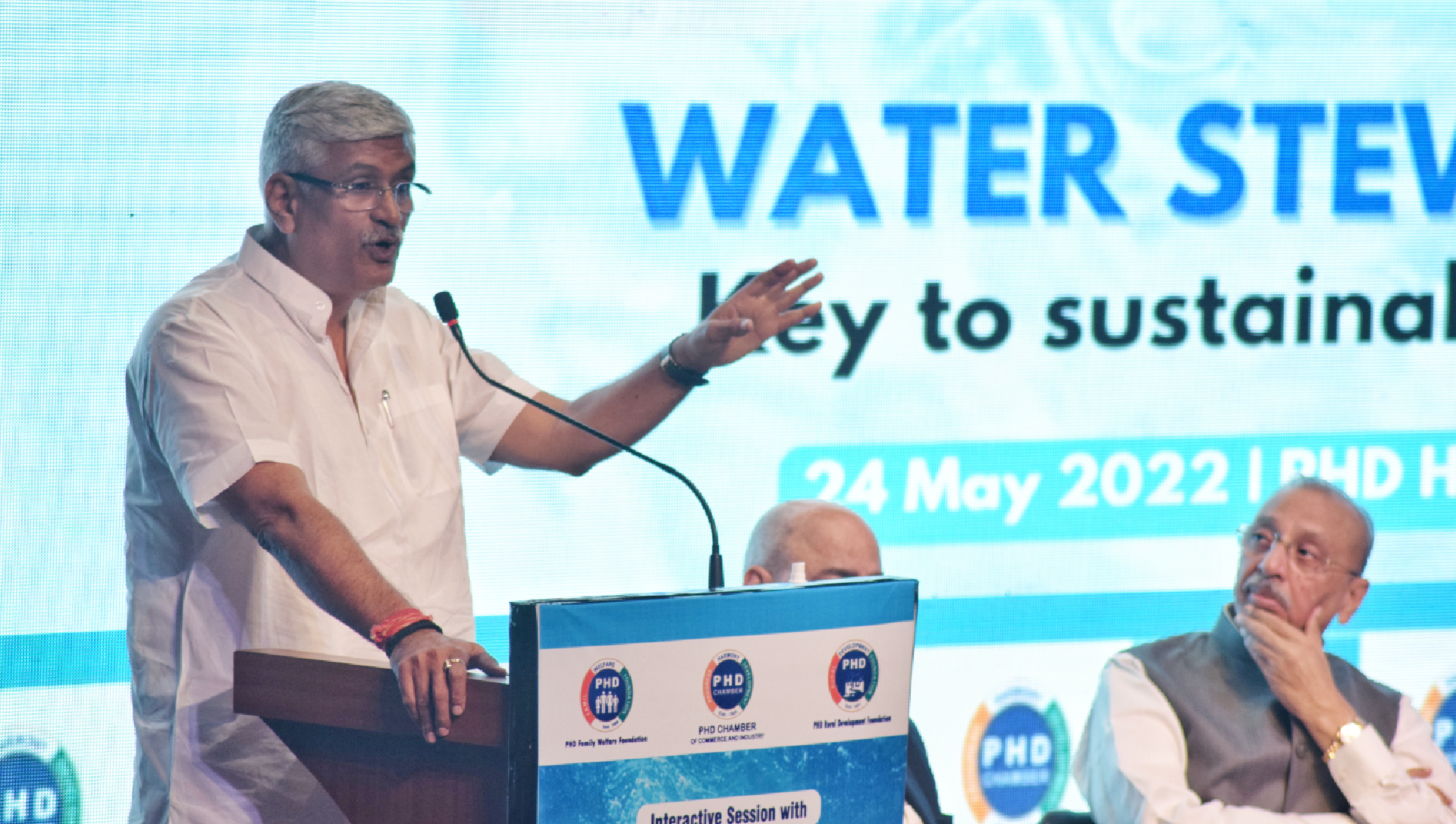NEW DELHI: Gajendra Singh Shekhawat, Minister of Jal Shakti, said water conservation and rainwater harvesting are very essential as India has suffered water stress and scarcity of water.
“Rainwater harvesting and conservation are the keys to a sustainable future. I come from a place where water scarcity and less rain are a very severe issue,” Shekhawat said on Tuesday.
Recalling his childhood, the union minister said, “My mother and sisters used to walk 10 km to fetch water.”
The Union Minister’s remark came during an interactive session on ‘Water Stewardship: Key to Sustainability in India’, organised by the PHD Chamber of Commerce and Industry (PHDCCI).
Acknowledging that India has the highest dependency on groundwater resources in the world, Shekhawat said that it is imperative to work on groundwater replenishment and asked the industry to help conserve water not just in their own sector but also in and around them.
“India has the highest dependency on groundwater resources in the world, much ahead of China and the US. The government is taking steps to replenish the dipping water table in the country,” he said.
“Water plays a very important role in the economic development of any country. If we examine the economic growth graph of the country, it exhibits a similar pattern with its energy and water consumption,” he added.
Due to a shortage of water, India is facing a slew of challenges including irrigation and industrial activities. India’s per capita water availability has declined to 1200-1500 cubic metric from 5000 cubic metric per person.
Shekhawat called for three important steps to be taken by the industry. First and foremost, work for replenishment of groundwater. Secondly, it needs to go for recycling and reuse of water. Lastly, he advised the industry to encourage agriculture around the industry to save water by adopting drip irrigation.
“By using drip irrigation, even if we save 10 per cent, then we would not need to worry for the next 50 years,” he said.
Talking about river purification, Shekhawat said, “The Germans took 30 years to clean the river Rhine. It took 28 years for the UK to clean the Thames. Under the leadership of Modi, we have cleaned the Ganges within just 5 years.”

















